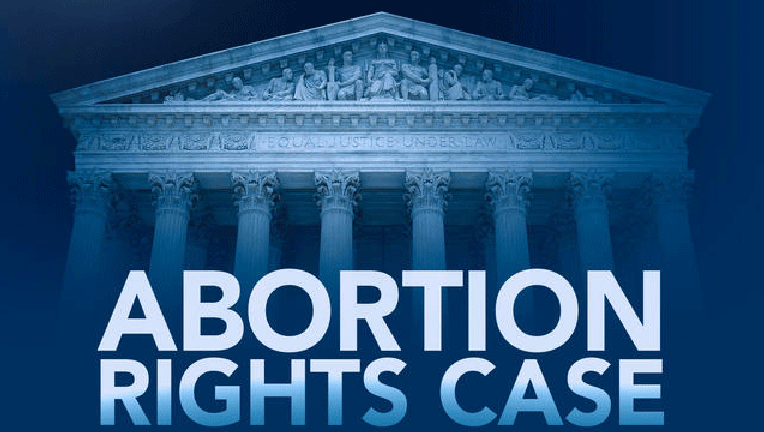A look at Indiana bill banning abortions for fetal defects

INDIANAPOLIS (AP) — An Indiana bill that would ban abortions sought because a fetus has a genetic abnormality such as Down syndrome is heading to Gov. Mike Pence for possible approval. The conservative Republican governor is a strong opponent of abortion and a spokeswoman said he would give it "thoughtful consideration." Indiana would be the second state in the nation to have such a restriction, if Pence doesn't veto it. Here's a look at what the measure would do and how state lawmakers approved it.
___
WHO WOULD BE AFFECTED?
Women would be barred from terminating a pregnancy because of a genetic abnormality. The measure would also allow doctors who perform abortions in such cases to be sued for wrongful death, or possibly face professional discipline.
Women typically are offered genetic screening for chromosomal disorders at the end of the first trimester or early in the second trimester, said Northwestern Medicine gynecologist Dr. Jessica Kiley in Chicago. "It's offered to all pregnant women, regardless of age, in our practice." Some women who learn of a genetic abnormality choose to have abortions, a difficult decision, Kiley said.
___
WHAT ELSE IS IN THE BILL?
The measure includes other provisions regulating the handling of miscarried or aborted fetuses, requiring abortion providers to cremate or bury fetuses. It would ban abortions for race, color, national origin, ancestry or gender of the fetus.
It also would make it a felony to transfer fetal tissue, a move aimed at Planned Parenthood after secretly recorded videos showed officials with the organization discussing how they sometimes supply fetal tissue to scientists.
___
HAS THIS BEEN DONE BEFORE?
North Dakota is the only state to ban abortions sought because of genetic fetal abnormalities. The state's Republican-led Legislature passed a measure in March 2013 that blocks abortions based on unwanted gender or a genetic defect, such as Down syndrome.
The state's sole abortion clinic, the Red River Women's Clinic in Fargo, has said the ban doesn't affect it because it doesn't perform abortions for those reasons.
Clinic director Tammi Kromenaker said Thursday the clinic does not perform abortions after 16 weeks of pregnancy. It is staffed by three doctors from nearby states.
"That's our doctors' preference," Kromenaker said. "After 16 weeks, it's generally a two-day procedure. Our doctors are just here for one day (a week)."
"Most of the genetic abnormalities are not found until after the point the Red River Women's Clinic provides abortions," Kromenaker said.
The clinic does not refer women to other clinics, she said.
"I would suspect their doctors would refer them out of state, most likely to Minnesota, which does not have reason-based restrictions," she said.
Minnesota, Oklahoma and Arizona require women to receive counseling on perinatal hospice services if they are seeking abortions because of a lethal fetal abnormality, according to the Guttmacher Institute, which supports legal access to abortion. Kansas requires counseling on perinatal hospice services before all abortions.
Perinatal hospice services include helping families deal with the grief of a miscarriage, fetal death or death of a premature infant.
___
IS IT CONSTITUTIONAL?
Critics in Indiana question whether the measure is constitutional, and even GOP House Speaker Brian Bosma said he expects a court challenge if Pence signs the bill into law. The New York-based Center for Reproductive Rights backed a lawsuit challenging the North Dakota law.
"The Supreme Court has consistently held that laws that ban abortion pre-viability are unconstitutional. Laws that ban abortion outright are unconstitutional. This would be a ban on abortions and therefore unconstitutional," said Kelli Garcia of the National Women's Law Center in Washington, D.C., which supports reproductive rights.
___
HOW WAS THE BILL PASSED?
The GOP-controlled House voted 60 to 40 Wednesday in favor of the bill, which had already been approved last week 37 to 13 in the Republican-dominated Senate.
Many opponents objected to the way the House went about approving the measure. An earlier version that was passed by the House did not include the ban, which was added in the Senate. Rather than send the bill to committee to negotiate details, GOP House leaders sent it to the floor for a vote, under a procedural maneuver that did not allow lawmakers to make changes.
The bill was opposed by many female legislators, including Republicans, who said it went too far.
"It saddens me and makes me sick to my stomach to be up here right now," Rep. Wendy McNamara, a Republican from Evansville, said during debate. "It's bills like these that make people like me really hate the system."
___
WILL THE GOVERNOR SIGN?
Pence is an anti-abortion social conservative who is facing a tough re-election in November and will have to count on his evangelical base producing a strong turnout.
But there is another consideration here. Under Indiana law, any bill approved by the Legislature that goes unsigned by the governor will automatically become law. That means, Pence would have to actually veto the bill to shut it down, which is unlikely given his faith and political stands.
___
Associated Press writers Brian Slodysko in Indianapolis, James MacPherson in Bismarck, North Dakota, and Carla K. Johnson in Chicago contributed to this report.

